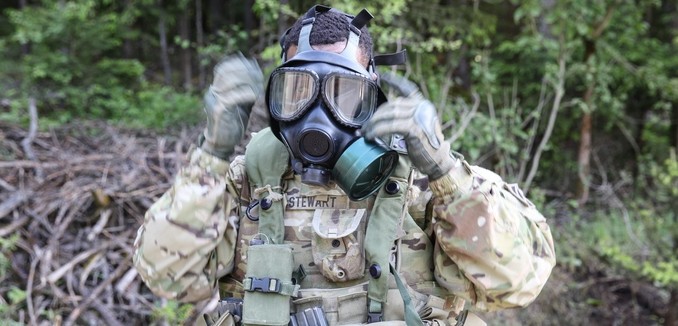While President-elect Donald Trump will likely be stricter in enforcing the terms of the nuclear deal with Iran, the incoming administration should not ignore the threat that Iran’s chemical and biological weapons programs pose, Benjamin Weinthal, a research fellow at the Foundation for Defense of Democracies, wrote Monday at Forbes.
Enforcing the nuclear deal will be a priority for the new administration, Weinthal observed, since Iran has been violating the accord since its implementation in January. Last month, the International Atomic Energy Agency reported that Iran violated its limit on heavy water for a second time. It has also pursued ballistic missile development in continued defiance of United Nations Security Council Resolution 2231, which codified last year’s nuclear deal.
Additionally, according to intelligence documents from Germany’s 16 federal states, Iran has since January attempted to covertly acquire nuclear-related materials, as well as to advance its chemical and biological weapons capabilities, which the nuclear accord does not address.
A recent Congressional Research Service (CRS) report on Iran’s military policies noted that “U.S. reports indicate that Iran has the capability to produce chemical warfare (CW) agents and ‘probably’ has the capability to produce some biological warfare agents for offensive purposes, if it made the decision to do so.”
“This raises questions about Iran’s compliance with its obligations under the Chemical Weapons Convention (CWC), which Iran signed on January 13, 1993, and ratified on June 8, 1997,” the report observed.
However, the CRS report reached its conclusion without citing the recent German intelligence documents, Weinthal noted.
The state of Rhineland-Palatinate’s intelligence agency warned in its 2015 annual report that Iran had sought to acquire equipment that could be used to manufacture “atomic, biological and chemical weapons in a war.” Intelligence agents added that “these goods could, for example, be applied to the development of state nuclear and missile delivery programs.”
Baden-Württemberg’s intelligence service similarly reported Iranian efforts to obtain technology for the production of “nuclear, chemical and biological weapons programs,” while Saarland’s intelligence agency noted that both Iran and North Korea tried to acquire “technology for atomic, biological or chemical weapons.”
While Iran claims that it would never use chemical weapons because its soldiers were targeted by lethal nerve agents during the Iran-Iraq War, the evidence from these intelligence reports suggest that Iran must be compelled to allow international inspectors to confirm that it is adhering to the Chemical Weapons Convention.
The need to ensure Iran’s compliance with the CWC has been made more urgent by reports from Kurdish fighters last month that Iranian troops deployed chemical weapons against them in western Iran. Moreover, Gen. Michael Flynn, former director of the Defense Intelligence Agency and Trump’s newly appointed national security advisor, wrote in his new book that one of the letters recovered from Osama Bin Laden’s compound reported that al-Qaeda was “working on chemical and biological weapons in Iran.”
In addition to these reports, Iran has also been silent about its client, the regime of Syrian President Bashar al-Assad, using chemical weapons against civilians. Iran even opposed a recent condemnation of Syria and the Islamic State by the Organisation for the Prohibition of Chemical Weapons.
It is therefore imperative that Trump’s pledge to “police that contract [nuclear deal] so tough they [the Iranians] don’t have a chance” to violate it should also be applied to its chemical and biological weapons programs, Weinthal wrote.
Given that Iran is a primary state sponsor of terrorism, new sanctions against Iranian entities involved in its chemical and biological weapons programs would be “a solid first step” in fighting its “drive for hegemony in the Middle East,” he concluded.
[Photo: Spc. Shardesia Washington U.S. Army / WikiCommons ]




